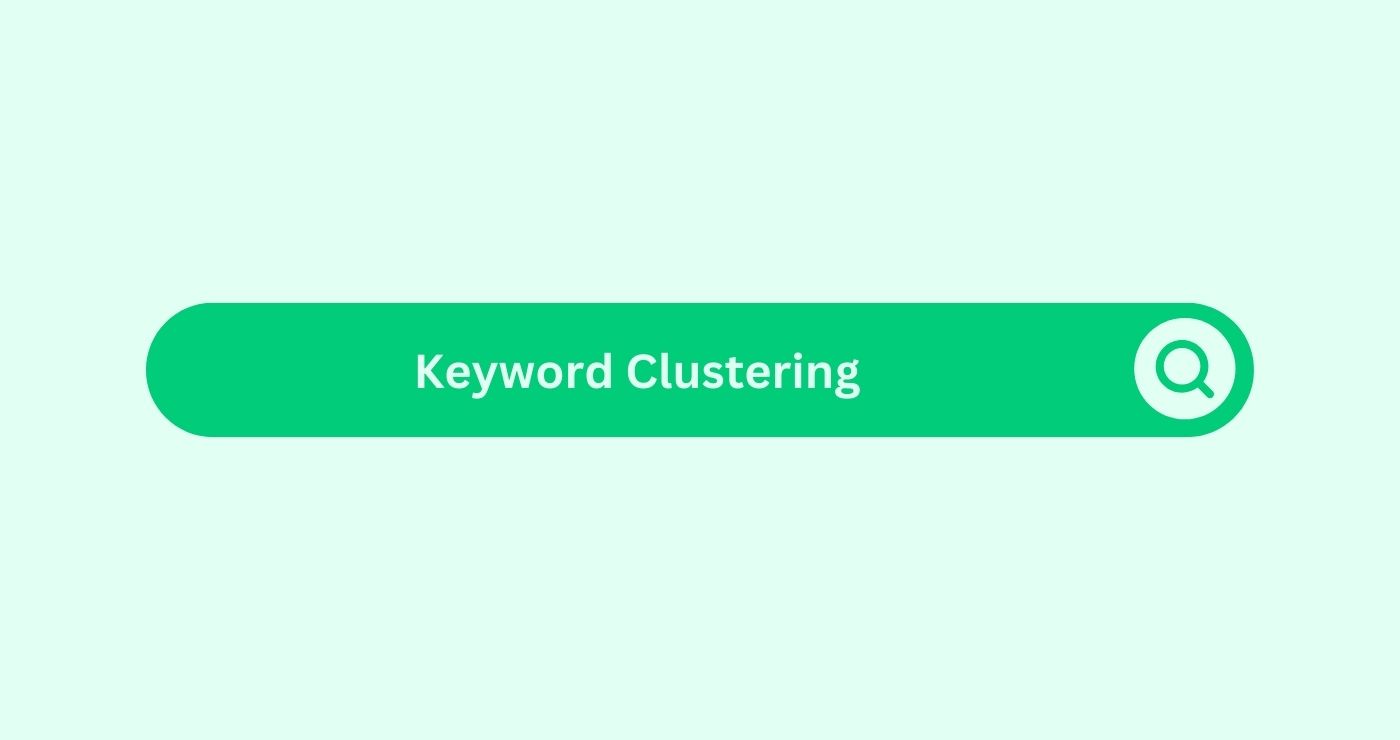Definition
Keyword clusteringDefinition Clustering is an AI technique used to group simil... involves the categorization of keywordsDefinition Keywords are crucial for SEO success as they conn... into groups or clusters based on their semantic relevanceDefinition In SEO, relevance refers to the degree to which a... and search intent. This process aims to uncover patterns and relationships among keywordsDefinition Keywords are crucial for SEO success as they conn... to inform content creation, on-page optimization, and overall SEO strategy. Keyword clusteringDefinition Clustering is an AI technique used to group simil... in SEO groups related keywordsDefinition Keywords are crucial for SEO success as they conn... based on semantic similarity and search intent, helping professionals understand content and develop targeted strategies.
How you can use
For example, suppose a website focuses on digital marketing. Through keyword clusteringDefinition Clustering is an AI technique used to group simil..., you may identify clusters such as “Digital Marketing Agency Auckland.”. Within each cluster, specific keywordsDefinition Keywords are crucial for SEO success as they conn... related to the respective topics are grouped, allowing for more targeted optimisation efforts.
Key Takeaways
- Semantic RelevanceDefinition In SEO, relevance refers to the degree to which a...: Keyword clusteringDefinition Clustering is an AI technique used to group simil... enables the identification of semantically related keywordsDefinition Keywords are crucial for SEO success as they conn..., allowing for more holistic content optimization.
- Content Planning: By clusteringDefinition Clustering is an AI technique used to group simil... keywordsDefinition Keywords are crucial for SEO success as they conn..., SEO professionals can develop comprehensive content plans that cover various aspects of a topic or industry.
- User Intent Understanding: Grouping keywordsDefinition Keywords are crucial for SEO success as they conn... based on intent helps align content with user needs and preferences, enhancing the overall user experience.
- Optimization Efficiency: Keyword clusteringDefinition Clustering is an AI technique used to group simil... streamlines the optimization process by focusing efforts on specific keyword themes rather than individual keywordsDefinition Keywords are crucial for SEO success as they conn....
- Ranking Potential: A well-executed keyword clusteringDefinition Clustering is an AI technique used to group simil... strategy can improve a website’s ranking potential by targeting a broader range of relevant keywordsDefinition Keywords are crucial for SEO success as they conn... and topics.
FAQs
How does keyword clustering differ from traditional keyword research?
Keyword clusteringDefinition Clustering is an AI technique used to group simil... goes beyond traditional keyword researchDefinition Keyword research involves identifying and analysi... by organizing keywordsDefinition Keywords are crucial for SEO success as they conn... into thematic clusters based on semantic similarity and search intent, providing deeper insights into content opportunities.
What tools can I use for keyword clustering?
Tools such as SEMrush, Ahrefs, and Google's Keyword Planner offer features for keyword clusteringDefinition Clustering is an AI technique used to group simil..., allowing users to identify related keyword groups and analyze their search volumeDefinition Search volume in SEO shows the frequency of a key... and competition.
How many keywords should be included in a cluster?
The number of keywordsDefinition Keywords are crucial for SEO success as they conn... in a cluster can vary depending on the topic and its complexity. It's essential to balance comprehensiveness with relevanceDefinition In SEO, relevance refers to the degree to which a..., ensuring each cluster remains focused on a specific theme or aspect.
How often should I update my keyword clusters?
Keyword clusters should be periodically reviewed and updated to reflect changes in search trends, user behavior, and industry developments. Aim to refresh your clusters regularly to maintain relevanceDefinition In SEO, relevance refers to the degree to which a... and effectiveness.
Can keyword clustering benefit PPC campaigns as well?
Yes, keyword clusteringDefinition Clustering is an AI technique used to group simil... can be beneficial for PPC campaigns by helping advertisers organize their keyword lists more effectively, improve ad relevanceDefinition In SEO, relevance refers to the degree to which a..., and optimize campaignDefinition An SEO campaign involves focused, Organised effor... performance.
Is keyword clustering suitable for all types of websites?
Keyword clusteringDefinition Clustering is an AI technique used to group simil... can benefit most websites, especially those with extensive content librariesDefinition Libraries in the SEO space refer to collections o... or complex topics. However, its applicability may vary depending on the website's focus and target audienceDefinition The term "Audience" refers to the group of indivi....
How can I determine the effectiveness of my keyword clusters?
Monitor key performance indicators such as organic trafficDefinition In the context of SEO (Search Engine Optimisation..., keyword rankings, and user engagementDefinition Engagement in content marketing refers to the deg... metricsWhat are Metrics in the context of SEO? Metrics in SEO refer... to assess the effectiveness of your keyword clusters and make data-driven optimizations accordingly.
What role does user intent play in keyword clustering?
User intent is a critical factor in keyword clusteringDefinition Clustering is an AI technique used to group simil..., as it helps ensure that keywordsDefinition Keywords are crucial for SEO success as they conn... within the same cluster align with the searcher's intent, leading to more relevant and satisfying search experiences.
Can keyword clustering help identify content gaps on a website?
Yes, keyword clusteringDefinition Clustering is an AI technique used to group simil... can reveal content gaps by highlighting thematic areas that are underrepresented or not adequately covered on a website, enabling content creators to prioritize their efforts effectively.
How can I integrate keyword clustering into my content strategy?
Incorporate keyword clusters into your content strategyDefinition Content strategy involves planning, creating, pub... by mapping them to specific content pillars or topics, creating detailed content briefs, and optimizing existing content to target relevant clusters more effectively.




